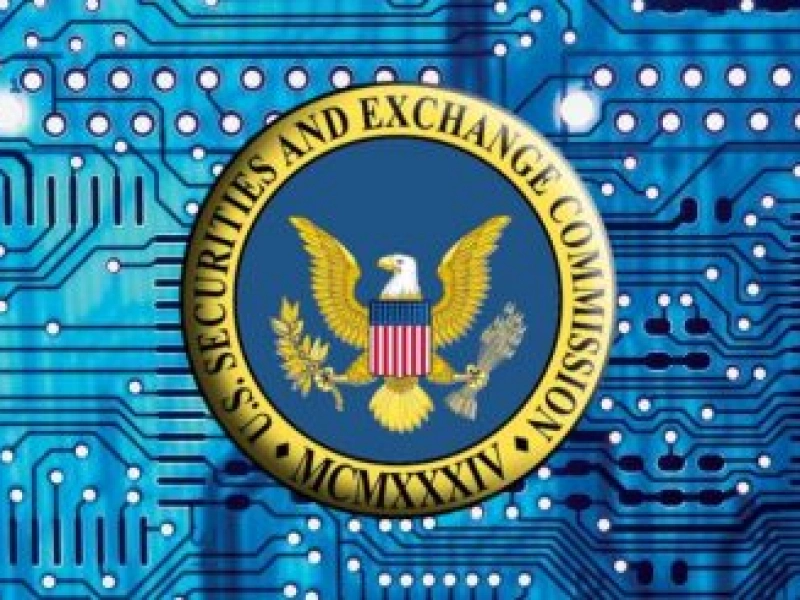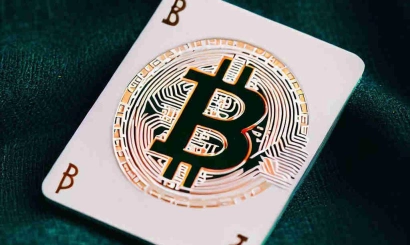Regulators vs cryptocurrencies. Who will benefit from the new rules
U.S. regulators are attacking major players in the crypto market. Asia and Europe are seizing the moment and trying to reclaim their status as industry leaders
U.S. authorities began the year with pressure on the crypto business at such a rate that industry leaders fear being forced out of one of the largest markets.
Since the beginning of the year, U.S. regulators, primarily the Securities and Exchange Commission (SEC), have filed several lawsuits against some of the leading players in the crypto market or issuers of their assets. At the same time, banks that provide accounts and payment processing services for cryptocurrency platforms have also come under attack.
Genesis Trading Group and Gemini Exchange were the first to feel regulatory pressure this year. They were accused of failing to register a common crypto-asset lending scheme and Gemini Earn user accrual program as activities falling under the Securities Act.
A month later, Kraken, one of the leading players in the Ethereum cryptocurrency stacking niche, was hit with a similar lawsuit and $30 million fine. It was forced to shut down its stacking program for U.S. users. Regulators claimed the exchange "promised" more than 20 percent annually in revenue from the service.
"Workflow."
Such active regulation of the industry is a legitimate work process to reorganize it. Because it has affected many areas and people, it is perhaps "given too much emotional significance," said crypto expert and author of the Telegram channel GFiSchannel Taisia Romanova.
"It's a natural function of the state to control and regulate. The tendency to "bring order" in the sphere of cryptocurrencies did not appear yesterday, the process has been going on for several years, but rather slowly," Romanova notes.
In her opinion, instruments for this purpose are out-of-date and the sphere itself as well as the processes in the society became too dynamic. At the same time, accusations of the SEC that they "do not know what they are doing" are unfounded. The agency has enough knowledge to understand the nuances, but they take advantage of broad and controversial interpretations of laws and regulations.
In a further regulatory escalation, the New York State Department of Financial Services banned Paxos from issuing BUSD, the third most capitalized stablecoin widely used on and branded by Binance, a major cryptocurrency exchange. The number of BUSD in circulation dropped by more than $2 billion in a matter of days as investors chose to move funds into other assets.
"It's a declaration of war." Why the BUSD issuance ban is a critical development
The channels for converting cryptocurrencies into fiat funds have also not gone unnoticed by regulators. In January, the Federal Reserve (Fed) rejected Custodia Bank's application to join its payment system because the bank's expressed positive attitude toward the cryptocurrency business was "very likely inconsistent with safe banking practices." Silvergate, another cryptocurrency-oriented bank, is under scrutiny by U.S. lawmakers for its role in providing services to the bankrupt FTX exchange.
Binance basically suspended the ability to buy cryptocurrency with dollars in February without explanation. One of its banking partners, Signature Bank, previously said it would no longer allow customers of the cryptocurrency exchange to buy or sell assets under $100,000. Responding to questions from subscribers during a recent Twitter Spaces broadcast, Binance CEO Changpeng Zhao suggested that regulators had likely asked banks to "either not handle cryptocurrencies at all, or to approach their handling with extra caution."
Not very stable
Banning the issuance of BUSD stablecoin was perhaps the most high-profile SEC decision, and the ousting of Paxos from the ranks of the first three stablecoin issuers inevitably provokes shifts in the market. As Zhao noted, about $2.45 billion of BUSD's capitalization has gone to other stackable coins, particularly USDT from Tether, an issuer less exposed to the actions of U.S. lawmakers. As the head of Binance observes, "the stablecoin landscape is changing noticeably."
New Dollars. What you need to know about stablecoins in 2023
The exchange itself is already introducing alternatives to BUSD, such as turning to the less popular TUSD (TrueUSD), which at the time of publication has a capitalization of about $969 million, according to CoinMarketCap. But in response to questions on the same broadcast, Zhao said that with growing pressure from U.S. regulators, dollar-linked stablecoins could eventually lose market share to "stablecoins" backed by the euro or other world currencies.
In such a scenario, the exchange's retail customers would likely be able to adapt quickly to the euro, Turkish lira, or other currencies, but large investors would obviously need significant liquidity to move capital. Binance's inability to handle the most liquid and capitalized stablecoins pegged to the dollar could be an obstacle for the platform's institutional transactions.
"Sandwich Position."
The lack of clear rules on cryptocurrencies and the outright hostility of regulators will cause America to lose its financial center status in the long run, said Brian Armstrong, head of Coinbase, the second-largest crypto exchange, adding that "cryptocurrencies are open to everyone," with the EU and Hong Kong pulling the industry's leadership.
In Hong Kong, crypto-asset trading is being legalized, despite a ban on cryptocurrency trading and mining in mainland China. That's the information Armstrong is referring to, and he's not the only industry representative in the U.S. who sees the actions of Hong Kong and Asia as a whole as a trigger for the expansion of the legal crypto market.
"I don't think we can talk about any serious confrontation between the U.S. and Asia, positioning the latter as more liberal," comments Taisia Romanova, referring to the even stricter rules of the Asian segment of the crypto market.
The possibility to legally buy cryptocurrency in Hong Kong, in her opinion, "has a double bottom. Access would be strictly through licensed platforms and subject to strict Know Your Customer (KYC) rules and asset listing requirements. At the same time, authorities in both Hong Kong and China openly declare that they favor the development of blockchain technology itself and the implementation of Web 3.0. The ban is not on the technology itself, but on "potentially dangerous to the people" activities.
European regulators are also trying to speed up the legalization of the crypto industry. The ECB is urging EU banks to already apply the rules developed by the Basel Committee on Banking Supervision when dealing with crypto-assets, even before they formally come into force. A central bank spokesman told CNBC that the regulator fears being sandwiched between the U.S. and China in the introduction of digital currencies before it has time to implement its own market regulations.
According to Romanova, Europe's desire to join the digitalization race is understandable. It is necessary both to "preserve its renown" and from an economic and political point of view, open up opportunities for alternative interaction with other countries.
The activities of both European and Asian regulators represent "desperate attempts to keep up with the new spirit of the times," to maintain control and retain power and credibility with their populations in the international arena, Romanova said. In her opinion, if there is no change in methods, such actions are likely to fail in the medium term.
- Yandex added a cryptocurrency converter to search
- Japan to launch pilot testing of digital currency system in April
- Report: 24% of tokens issued in 2022 had signs of Pump & Dump schemes
- Tornado Cash developer is jailed at least until the end of April
- NFT has recorded the highest volume of trades in the last 3 months
- Hong Kong issues world's first tokenized green government bonds




_410x245_00e.webp)


